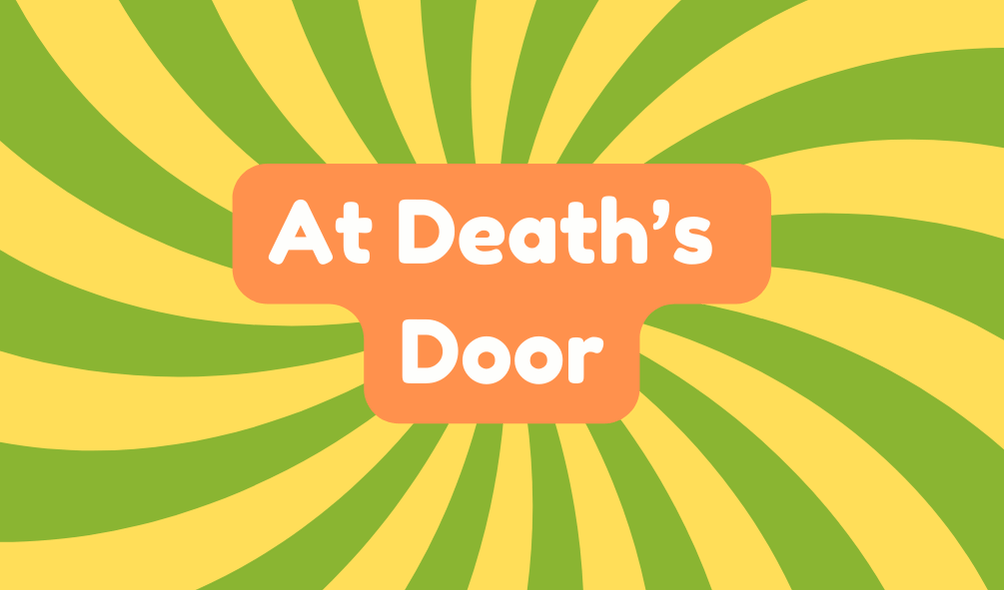The phrase "at death's door" indicates a serious health condition or the imminent approach of death. Its origin dates back to the late 1300s, symbolizing the idea of standing at a threshold between life and death. Used in expressions like "barely at death's door," it reflects societal anxieties about mortality. While it can evoke empathy, overuse may trivialize genuine health concerns. Understanding its implications could reveal more about society's views on illness and the language of mortality.
Synonyms
Synonyms serve as linguistic alternatives that expand the way individuals express concepts, including the grave notion of death. In the domain of synonyms exploration, alternative phrases reveal the nuances of mortality. These variations provide depth to conversations about life's finality and reflect cultural understandings.
- Passing away
- Final cessation of life functions
- Permanent ending of essential processes
- Termination of biological existence
These terms not only diversify language but also prompt introspection about how people perceive death. By utilizing alternative phrases, one can navigate difficult discussions, while simultaneously questioning the broader implications of mortality in society.
Example of Sentences
Understanding how to use the phrase "at death's door" in sentences can clarify its meaning and impact. This expression often embodies health exaggeration and applies to life-threatening situations. It's essential to recognize that many use this phrase dramatically, not literally.
- "He declared he was at death's door after a minor cut."
- "The patient's illness was severe; she genuinely was at death's door."
- "After days of flu, he theatrically claimed he was at death's door."
- "The failing business seemed at death's door due to online competition."
Such examples highlight the delicate dance between reality and exaggeration in language.
Origin
The phrase "at death's door" carries a historical weight, reflecting societal views on mortality and health. Its origins trace back to the late 1300s, where the association of death with an entryway first emerged in English. By the mid-1500s, the term solidified in the vernacular, often depicting not just impending demise but also an exaggerated state of ill health. This linguistic evolution illustrates the complex narrative surrounding death, illustrating how language shapes perceptions. Throughout history, the phrase has highlighted humanity's perennial fascination with mortality, revealing deeper truths about life's fragility and the thresholds we inhabit in times of crisis.
Collocations
Collocations related to the phrase "at death's door" reveal how language shapes the way people express severity in health matters and serious situations. Many idiomatic expressions surrounding death highlight existential anxiety and the gravity of illness. Understanding these collocations offers insight into cultural perspectives on mortality.
- "Barely at death's door"
- "At death's door critically"
- "Feeling at death's door"
- "Near death's door"
These expressions underscore the exaggerated nature of our language, illuminating how serious health threats can be communicated more vividly, often reflecting societal tendencies to dramatize illness or misinterpret real danger.
How to Use in Everyday Language
Using the phrase "at death's door" can be a powerful way to convey the severity of a person's health condition, yet it is often employed with an exaggerated sense of urgency. In casual conversations and health discussions, its usage can mislead, prompting individuals to assume dire circumstances where they may not exist. Below is a table illustrating appropriate contexts for this expression:
| Context | Appropriate Usage | Cautionary Note |
|---|---|---|
| Casual Talk | To emphasize a friend's illness | Risk over-exaggerating their state |
| Health Care | Describing critical conditions | Avoid unnecessary panic in discussions |
| Humor | Light-hearted exaggeration | confirm clarity to prevent confusion |
| Literature | For dramatic effect | May detract from realistic portrayal |
Why Is It Still Relevant Today?
In modern conversations, the phrase "at death's door" remains a vivid expression that captures attention, often employed to dramatize ordinary health issues. This relevance stems from shifting cultural perceptions about illness and mortality, where exaggeration evokes empathy or humor. Language evolution allows such phrases to adapt, highlighting contemporary fears surrounding health crises. However, the persistent usage invites skepticism; it risks trivializing serious conditions while diluting the phrase's original gravitas. Consequently, while it serves as a colorful linguistic tool, its frequent application in everyday dialogue may challenge the balance between authenticity and sensationalism. Understanding this dynamic fosters deeper communication.







